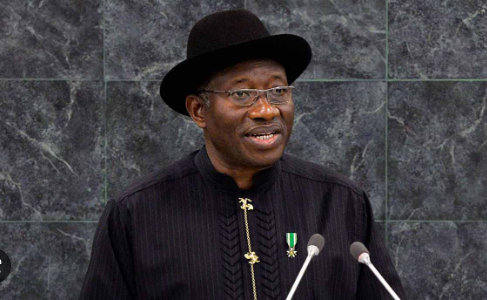TWO weeks ago in Abuja, a meeting of a working group on Nigeria’s transition to Digital Broadcasting was held in Abuja. Unless you have a specialist interest in the subject, you probably won’t have noticed the coverage in the media. But that meeting brought together some of the leading international broadcast operators together, at the behest of the Nigerian company, Pinnacles Communications Limited.
That was the company that won the open, fair and competitive bidding for Nigeria’s license to drive the national digitization process from 2015. The Abuja meeting was one in a series of technical meetings to prepare the grounds for what will eventually become one of the most exciting phases in the development of Nigerian broadcasting into the future.
The main issue in this new development is that President Goodluck Jonathan did not intervene in a process which was allowed to run its course in a most transparent and equally patriotic manner.
Significantly, when the process was completed and a winning bid was announced and accepted, some of those who had hoped to be awarded the project began to work the system hoping to overturn the process; President Jonathan refused to intervene and upheld the fairness of the process, thus strengthening the digital regime into the future. We have often criticised the president on several issues of public policy and it is only fair to also praise what he did well for our country.
With the Digital Broadcasting process, he has done very well. And in the same vein, as a resident of both Abuja and Kaduna, I must express profound happiness for the effort being made to deliver the Abuja Mass Transit railways system as well as the Express Train system between the FCT and the old Northern regional capital, Kaduna.
When delivered, the distance between the two cities will be significantly bridged thus turning Kaduna into a major suburb of the FCT. The possibilities will emerge that one could reside in Kaduna and leave in the morning to work or transact business in the FCT. Economic corridors will develop along the railways system, since these are mass transit systems, usually employing hundreds, even thousands of working people. We will have the possibilities of Nigerians from all parts of the country working and living together and learning themselves and their country even better!
The colonial railways system had been constructed as a mass system of exploitation of the colonial countries. But like all great projects of history, they also carried unforeseen outcomes, because the same system had carried Nigerians around their country, and they helped to circulate anti-colonial ideas that gradually helped to forge the pan-Nigerian consciousness which led to the achievement of Independence.
Massive investment
What the Jonathan administration is doing with the massive investment in railways infrastructure will also impact on our national life in ways we probably haven’t even begun to conceptualize.
I have always argued for the construction and modernization of the nation’s railways system, therefore I feel happy that Goodluck Jonathan has taken a bold step in this direction. The vision must be pursued with vigour and it must be holistic, taking the system to Minna, and Benin City and the South and linking Maiduguri and Kano in the North.
There is the Warri-Aladja-Ajaokuta line at an advanced stage of construction. The idea is to make these lines national, crisscrossing our country so that the railways can become one of the markers of our modernization ambitions of the Twenty-First Century.
Those who doubt the possibilities of our greatness as a country will find their skepticism exploded by the integration that the railways can wrought in this country. That is one remarkable achievement that Goodluck Jonathan can be pleased with. I’m excited too about the possibilities for our future!.


